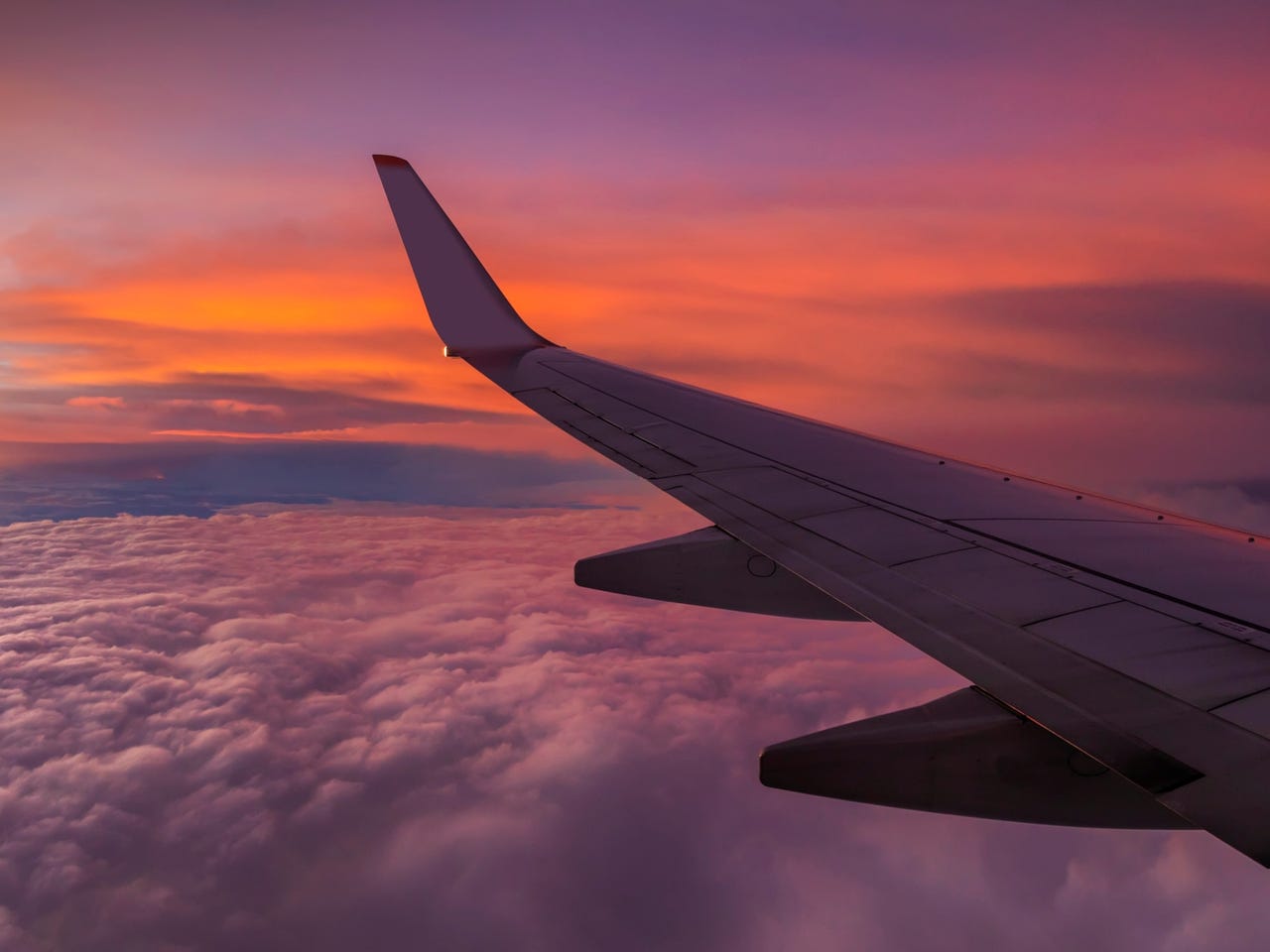































 Getty Images
Getty Images I don't want to worry you, but not everything is perfect in the airline world.
After so much positive jabbering from airline CEOs, one -- United's Scott Kirby -- confessed this week that business travel is leveling off.
This may have something to do with businesses leveling off the number of people they employ.
Also: These are my 5 must-have devices for work travel now
Perhaps, though, if you're thinking of a vacation this leveling off may be good for you. More seats for those who just want to get away and rest.
But things don't always go so smoothly, even with the finest of intentions. I'm forced, therefore, to prepare you for potential bumps in the air.
You see, the pilots at American Airlines wonder whether they should delay flights a little. Or perhaps even a lot.
No, they don't actually, expressly say that. But it seems they have a particular concern and believe the best way of addressing it is to slow things down.
The issue at hand is the so-called Known Crewmember screening system. You may have seen it in action. If you're a pilot or flight attendant, you're allowed to breeze slightly more quickly through security, without necessarily having to undergo quite the same personal scrutiny endured by regular humans.
It seems, though, that the occasional airline employee may have taken advantage of this (relative) freedom in allegedly illegal ways. You know, the drug-trafficking kind of thing. This has led to the TSA allegedly performing rather more secondary screenings, just to make sure there isn't a sniff of nefarious activity.
Also: The 4 best travel VPNs
Ergo, says the American Airlines pilots union president, Ed Sicher, the pilots aren't happy.
Reportedly, he offered: "It is not unusual for a pilot to be 'randomly' screened six or seven consecutive times. The rate of these screenings has increased to the point where expeditious screening at KCM has been replaced by unpredictable and in some cases lengthy delays."
Sicher explained that the bosses like to see planes quickly turned around, but if pilots are being held up in these secondary screenings, this causes delays.
The pilots' solution, therefore, seems to be, oh, to cause more delays.
Said Sicher: "I recommend using the standard passenger entry points for security screening when beginning and connecting on our sequences. For those who choose to do so, please do NOT jump in front of passengers who may also be harried and late due to the unpredictable nature of the TSA checkpoints."
Thoughtful, at first glance.
Also: 12 gift ideas for travelers this holiday season
At second glance, however, well, here are some more of Sicher's recommendations: "By temporarily bypassing the KCM Crewmember screening checkpoints, we will highlight to both the TSA and management the problems that have arisen with the system. Once KCM has been fixed to the point that it is once again a predictable means of expeditious security screening, I will be the first to encourage our pilots to exercise the privilege. Until then, you should consider utilizing traditional TSA screenings and wait in line with our passengers."
I fear you've already got there -- and now fear you're not going to get where you want to go on time.
If pilots stand in line with the rest of us, it'll take them longer to get through security and flights may well be delayed.
We're living in an era where pilots of all airlines are exerting pressure on their bosses. Delta's pilots, for example, recently threatened to strike if they didn't get a new contract. In a complete coincidence, the airline announced last week it had reached agreement with its pilots on an above-30% raise.
Perhaps, then, the American Airlines pilots' saber-waggling will lead to a swift resolution. Perhaps customers will never have to stand with their pilots after all. Perhaps everything will fly smoothly.
But it all incites a slightly soiled atmosphere that can only leave customers wondering what may happen.
And all they really want is a little peace.
 Tags quentes :
Negócio
Tags quentes :
Negócio